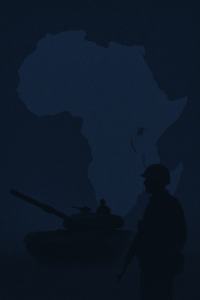It has been over three years since the Taliban, an extremist Islamist militant group, came to power in Afghanistan. On August 15, 2021, the Islamic Republic of Afghanistan took the last blow with the fleeing of its president, Ashraf Ghani, and the Taliban entering the capital, Kabul. As soon as the Taliban took hold of Kabul, the extremist group took no time to close schools for girls beyond the 6th grade. Cases of summary killings and enforced disappearances of former Afghan national security force members emerged throughout the country. Resistance fronts vowing to challenge the Taliban’s authority and ideology sprang up in the country. In today’s Afghanistan, human rights, international security, and democracy are being systematically dismantled by the Taliban.
The Reality of Gender Apartheid
During the 2020 Doha peace negotiations and the subsequent intra-Afghan talks, many international observers believed the Taliban to have changed, especially towards women’s rights to education and work. Yet, as of late 2024, Afghan women are banned from most workplaces, have been completely barred from continuing and pursuing their post-secondary education, and have limited distances to travel without an appropriate male relative. Article 13 of the Taliban Vice and Virtue Ministry’s formally declared morality laws, requires Afghan women to be completely veiled, including covering their face, when in public and not to be heard reading, singing, or reciting aloud. In a joint report to the UN Human Rights Council, titled “Situation of women and girls in Afghanistan,” the Special Rapporteur on Human Rights in Afghanistan and the Working Group on discrimination against women and girls in Afghanistan have rightly labeled the Taliban’s mistreatment of Afghan women as “gender persecution and an institutionalized framework of gender apartheid.”
The Media Crackdown
Not surprisingly, Afghanistan’s media landscape has faced systematic restrictions, censorship, and abuses since the Taliban takeover. Journalists, male, and female have been beaten and detained by the Taliban over their reporting. About 80% of women journalists either lost their jobs or left it. Reporters Without Borders has ranked Afghanistan the second worst country for press freedom out of 180 countries in its 2024 World Press Freedom Index.
International Terrorism on the Rise
On the international terrorism front, the Taliban agreed in the Doha deal with the United States that they would not allow Al-Qaeda to operate on Afghan soil. Yet on July 31, 2022, Al-Qaeda leader, Ayman al Zawahiri, was assassinated by a US drone strike in Kabul. He was living in a luxurious house in downtown Kabul. Senior US officials concluded that the senior members of the Haqqani faction of the Taliban knew of al-Zawahiri’s location. In addition, Al-Qaeda is actively engaging in outreach and recruitment within Afghanistan and is found to be assisting the Tehrik-Taliban Pakistan (TTP) in its terrorist operations against Pakistan. Since the Taliban came to power, the TTP has found increased haven and operational freedom under their Afghan counterparts. All in all, more than two dozen terrorist groups are operating in Afghanistan with oversight from the Taliban regime’s General Directorate of Intelligence.
Pashtun Dominance
Furthermore, the Taliban have not lived up to their pledge and international calls to be an all-inclusive government that adequately represents Afghanistan’s multiethnic makeup. With the Taliban being a predominately Pashtun force, power is almost exclusively in the hands of the Pashtun ethnic group. A recent UN report states that ‘Pashtun dominance is still causing stress within the social fabric of a multi-ethnic country”. Communities such as the Shia and Hazara are facing widespread persecution under the Taliban.
Ways Forward
There must be continued international pressure on the Taliban to uphold basic human rights, especially women’s rights to participate and engage in society. A big step would be moving towards the codification of gender apartheid in international law, as a crime against humanity. The explicit codification of gender apartheid in international law will give the international community the appropriate tools to respond to state-sponsored gender oppression.
Simultaneously, the international community should give greater attention to democratic anti-Taliban Afghan groups operating in Afghanistan, such as the National Resistance Front (NRF). The leader of the NRF, Ahmad Massoud, has made it clear that his front’s mission is to achieve a democratic, decentralized, and pluralistic Afghanistan—a state society in which every individual enjoys equal rights. Anti-Taliban resistance groups should be supported in their struggle to achieve a democratic and inclusive Afghanistan free from extremism and terrorism.
The last time Afghanistan was in the hands of the Taliban, it became a hotbed of international terrorism, major human rights violations, and overall societal decay. Fast forward two decades later, Afghanistan has once again become a victim of the same set of dire conditions under the same Taliban. The Afghan people cannot afford neglect and lip service to their plight by the international community.









